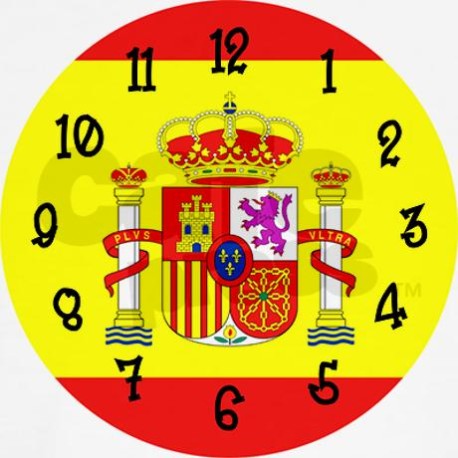Spanish Working Hours
SPANISH WORKING HOURS
(Originally published in Diario Sur in Spanish)
AJ Linn
The Spanish Administration has a Commission for the Rationalisation of Working Hours. According to this eminent organisation 60% of Spanish workers would like to change to the northern European timetable. A tour around Málaga’s Parque Tecnológico at midday gives us a glimpse of the future. Between two and three the bars and restaurants are working flat out. No-one appears to go home for lunch, and it is probably safe to say that the mainly young people working there have no problem with an horario intensivo, starting at eight or nine and working almost straight through until six or seven. There is also a traffic jam each evening as everyone leaves the Park at the same time.
What supporters of the modern timetable ignore is that it will impose a radical change on the Spanish way of life.
Spaniards have their main meal at midday and in the evening it is invariably something light like salad, omelette, cold meats, etc. Under the proposed timetable people will have their main meal in the evening, as northern Europeans do. But northern Europeans tend to go home from work and stay there for the night. Spaniards prefer to go out for drinks, tapas, meet friends and so on, so how will they fit in a heavy evening meal when they would probably be tapa-hopping?
Not long ago I found myself in the company of an American CEO visiting Spain for the first time. Taking a coffee break at mid-morning in a central Málaga bar, this lady looked around at the crowds of suits also taking their coffee break and asked, ‘What are these guys doing here? They should be in their workplaces?’ Clearly, as a boss, she preferred her employees to be chained to their desks all day, eat a sandwich for lunch and only get up to go to the coffee machine.
Before we are browbeaten into accepting EU working hours, let’s give a few moment’s thought to what we will be losing, and how it will affect some of the more pleasant Spanish customs and quality of life. After all, do we live to work or work to live?
Disclaimer: The views, opinions and positions expressed within this guest article are those of the author AJ Linn alone and do not represent those of the Marbella Marbella website. The accuracy, completeness and validity of any statements made within this article are not guaranteed. We accept no liability for any errors, omissions or representations. The copyright of this content belongs to AJ Linn and any liability with regards to infringement of intellectual property rights remains with the author.
















The opinions expressed by individual commentators and contributors do not necessarily constitute this website's position on the particular topic.